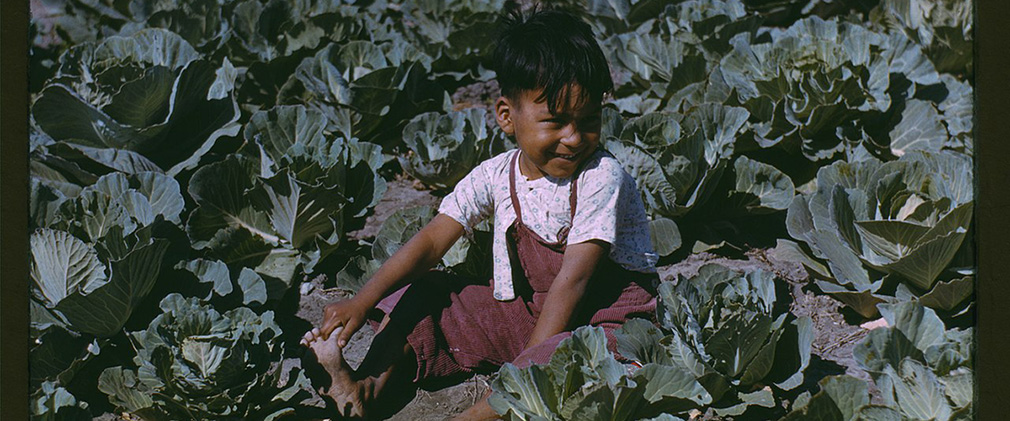Immigration Reform Requires Food System Reform
President Obama and the leadership of the U.S. House and Senate have all declared that reform of the United States’ unfair and broken immigration system is on their respective agendas for this year. While Speaker John Boehner and Republican Leader Mitch McConnell have backtracked somewhat recently, the interest in reforming the current fiasco is there.
It has been estimated by Farmworker Justice that there are 4.5 million farm workers and family members in the United States, and that up to 75 percent of them are undocumented. Thousands more are employed in the slaughter plants and processing facilities that are part of our agricultural production system.
Beginning in November of 1960 with the release of the CBS Reports documentary Harvest of Shame by Edward R. Murrow, many news programs, magazine and newspaper articles, and documentaries have highlighted the problems facing migratory, immigrant, and undocumented workers in the produce harvesting and processing system. But another aspect of the present industrial agriculture system in the U.S. deserves attention and that is the industrial food animal production (IFAP) and processing system.
Farm workers employed in the industrial food animal system are at risk for several health issues that could affect them, their families, communities and even the broader public. The reason they are at risk goes to the very nature and structure of industrial food animal production.
Workers in IFAP operations are exposed to at least 160 different gases because the animals are confined, foremost among them hydrogen sulfide, ammonia, carbon dioxide, methane, and carbon monoxide. Even short-term exposure to these gases can cause respiratory problems in these workers.
In addition to the gases common in IFAP operations, particulate matter can add to the temporary and chronic respiratory irritation similar to the problems faced by grain handlers: acute and chronic bronchitis, non-allergic asthma-like syndrome, mucous membrane, and noninfectious sinusitis. Evidence also suggests that increasing exposure to irritants common in IFAP can lead to increased airway sensitivity. Industrial food animal system workers face other threats to their health by exposure to antibiotic resistant bacteria, arsenic, and novel flu viruses, depending on the species produced. The Federal Food and Drug Administration data show that 80 percent of the antibiotics sold in the U.S. are used in IFAP. That antibiotic misuse, which is intended to compensate for overcrowding and poor waste management, is a major driver of antibiotic resistant bacteria, and IFAP workers are at ground zero for exposure to resistant E. coli, Campylobacter, Salmonella, and Staphylococcus aureus.
In its final report, Putting Meat on the Table: Industrial Farm Animal Production in America, the Pew Commission on Industrial Farm Animal Production stated, “…the continuing recycling of viruses and other animal pathogens in large herds or flocks increases opportunities for the generation of novel flu viruses through mutation or recombinant events that could result in more efficient human-to-human transmission. Such novel viruses not only put the workers and animals at risk of infection but also may increase the risk of disease transmission to the communities where the workers live.” The potential for generating novel flu viruses increases when swine and broiler chicken operations are co-located, which is a growing trend in North Carolina.
Dr. Robert S. Lawrence, Director of the Center for a Livable Future, recently wrote President Obama and the four legislative leaders urging them to consider changes in the IFAP system to address these public health threats that directly affect these workers and their families. As he stated,
“There is broad agreement that immigrant and migratory workers are important to the food and production system in the United States. It is time that their critical role be acknowledged by considering immigration reform in the context of the public health threat these workers face, either through pesticide and toxic animal waste exposure in produce production, the dangerous conditions created by the industrial food animal production system, or the inherent dangers in the food animal processing system.
Production practices such as the routine misuse of antibiotics, a production system that promotes the generation of novel flu viruses, and the toxic nature of industrial food animal system waste should be part of the debate on immigration policy. At the very least, the involvement of the Center for Disease Control and Prevention’s National Institute of Occupational Safety and Health (NIOSH) should be a priority in determining the health impacts on these workers, as well as the possible impact on broader public health.”
His letter says it all.
Image: Wikimedia Commons
